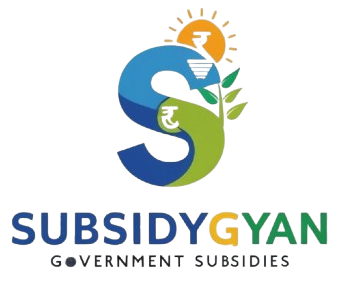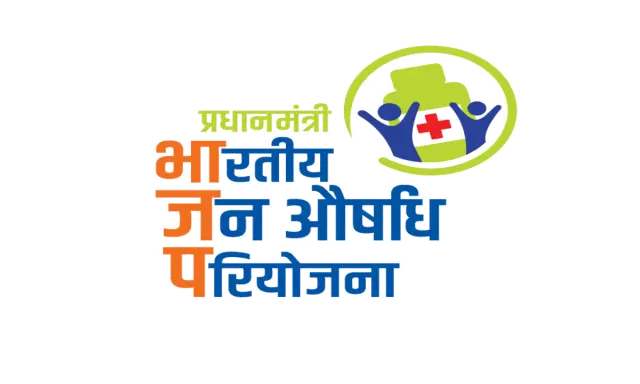Healthcare affordability and accessibility have always been major challenges in India. In November 2008, the Department of Pharmaceuticals, Ministry of Chemicals & Fertilizers, Government of India launched the Pradhan Mantri Bhartiya JanAushadhi Pariyojana (PMBJP) to address these issues. This initiative aims to provide high-quality generic medicines at affordable prices, ensuring that people, especially the economically weaker sections, can access essential healthcare.
Under this scheme, Jan Aushadhi Kendras have been established across the country to sell generic medicines at a much lower cost than branded medicines. As of September 30, 2024, over 13,822 Kendras are operational, providing access to 2,047 medicines and 300 surgical items.
Objectives of PMBJP
The key objectives of the Pradhan Mantri Bhartiya JanAushadhi Pariyojana are:
- Affordable Healthcare for All: Ensure the availability of quality medicines at lower costs, benefiting the poor and underprivileged.
- Promotion of Generic Medicines: Create awareness about generic medicines and dispel the misconception that only expensive medicines are effective.
- Employment Generation: Encourage entrepreneurs to set up Jan Aushadhi Kendras, providing sustainable self-employment opportunities.
Salient Features of PMBJP
PMBJP has introduced several features to make healthcare more affordable and efficient:
Government & Private Participation: The scheme is operated by both government agencies and private entrepreneurs.
Financial Incentives:
- The financial incentive for Kendra owners has been increased from ₹2.5 lakh to ₹5 lakh (15% of monthly purchases, with a maximum ceiling of ₹15,000 per month).
- A one-time grant of ₹2 lakh is provided for furniture, fixtures, computers, and printers for Kendras in Northeast, Himalayan regions, island territories, aspirational districts, and those opened by women, Divyang, SC/ST, and ex-servicemen entrepreneurs.
Affordable Medicine Prices: Jan Aushadhi medicines are 50%-90% cheaper than branded medicines, significantly reducing healthcare costs for common citizens.
Strict Quality Control: All medicines are sourced from WHO-GMP-certified suppliers, ensuring high quality and safety.
Lab Testing: Each batch of drugs undergoes testing in NABL-accredited laboratories (National Accreditation Board for Testing and Calibration Laboratories) before being sold.
Jan Aushadhi Kendra: How to Apply & Eligibility Criteria
Eligibility Criteria for Jan Aushadhi Kendra
1. Individuals & Entrepreneurs:
- Must be a registered pharmacist or have a B.Pharma/D.Pharma degree.
- Non-pharmacists can apply but must employ a registered pharmacist.
2. Doctors, NGOs, Charitable Trusts, and Self-Help Groups (SHGs): Hospitals, NGOs, Trusts, and Cooperative Societies can apply.
3. Government Institutions: State government agencies, municipalities, and cooperative bodies are eligible.
4. Special Categories: Women entrepreneurs, Divyang (persons with disabilities), SCs/STs, ex-servicemen, and applicants from the Northeast, hilly regions, and aspirational districts get special benefits (₹2 lakh one-time grant for setup).
Application Process of Jan Aushadhi Kendra
Step 1: Check Eligibility
- Ensure you meet the eligibility criteria mentioned above.
Step 2: Prepare Required Documents
- PAN Card & Aadhaar Card of the applicant.
- Ownership/rental agreement of the shop premises (minimum 120 sq. ft.).
- Pharmacist registration certificate (if applicable).
- Drug license (Retail Drug License & GST registration).
- Bank details & financial background proof.
Step 3: Online Application
- Visit the official PMBJP website: janaushadhi.gov.in
- Click on “Apply for New Kendra” and fill in the required details.
- Upload the necessary documents.
Step 4: Application Review
- The application is reviewed by the Pharma & Medical Bureau of India (PMBI).
- Once approved, you receive a Letter of Intent (LoI).
Step 5: Setup & Launch
- Arrange furniture, fixtures, and stock.
- Install billing software and signage.
- Your Jan Aushadhi Kendra is ready to operate! 🎉
JanAushadhi Suvidha Sanitary Napkin
As part of its commitment to women’s health and hygiene, the government launched the JanAushadhi Suvidha Oxo-biodegradable Sanitary Napkin on 27th August 2019.
Key Features:
Affordable Price: Available at just ₹1 per pad.
Nationwide Availability: Sold in 10,607+ Jan Aushadhi Kendras across India.
Environmentally Friendly: Made from oxo-biodegradable material, ensuring sustainability.
Impact: As of January 31, 2024, the cumulative sales of Suvidha Napkins have reached 50.41 crore pads, making them one of the most widely used affordable sanitary napkins in India.
JanAushadhi Sugam Mobile Application
The JanAushadhi Sugam Mobile Application is a government initiative designed to improve access to affordable medicines across India. This user-friendly app allows citizens to locate the nearest Jan Aushadhi Kendra, ensuring easy availability of generic medicines. Users can check real-time stock availability and prices, helping them make informed purchasing decisions. The app also features a medicine comparison tool, allowing users to compare generic medicines with expensive branded alternatives. Available for both Android and iOS, the app empowers people to choose cost-effective healthcare solutions, reducing dependency on high-priced medications and promoting the use of quality-assured generic drugs.
Conclusion
The Pradhan Mantri Bhartiya JanAushadhi Pariyojana (PMBJP) is a game-changer in India’s healthcare sector. By providing high-quality generic medicines at affordable prices, it has reduced financial burdens on families and improved public health outcomes.
PMBJP promotes cost-effective treatment options and strengthens healthcare infrastructure across the country. The initiative continues to expand, ensuring one Jan Aushadhi Kendra in every district, thereby increasing the accessibility of essential medicines to every citizen.
With its tagline “Jan Aushadhi-Seva bhi, Rozgar bhi” (Service and Employment), the PMBJP ensures affordable healthcare and supports self-employment and entrepreneurship.
As more people embrace generic medicines, India moves toward a future where no one has to compromise on health due to financial constraints.

